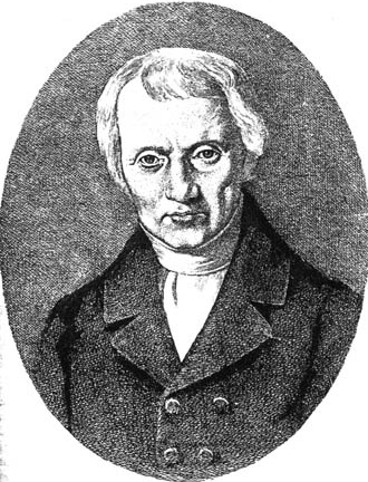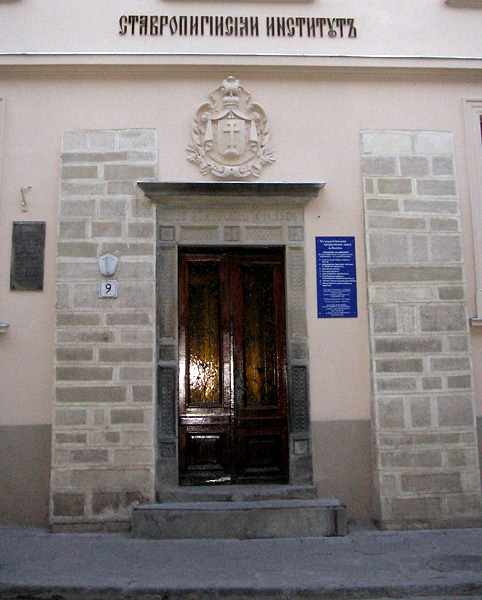|
Denis Zubrytsky
Denis Ivanovych Zubrytsky ( uk, Дени́с Іва́нович Зубри́цький, ; 1777 – January 16, 1862), was the first Ukrainian historian in Galicia and a major early figure in the Galician Russophile movement.Denys Zubrytsky, Encyclopedia of Ukraine (1993). Volume 5. Article written by Roman Senkus Life Denis Zubrytsky was born in 1777 into a family of Ukrainian nobles.. (2000) ''Ukraine: A History''. Toronto: University of Toronto Press, pg. 317 ...[...More Info...] [...Related Items...] OR: [Wikipedia] [Google] [Baidu] |
Ukrainian Russophiles
Galician Russophilia ( uk, Галицьке русофільство) or Moscophiles ( uk, Москвофіли) were participants in a cultural and political movement largely in the Kingdom of Galicia and Lodomeria, Austria-Hungary (currently western Ukraine). This ideology emphasized that since the East Slavs, Eastern Slavic people of Galicia (Eastern Europe), Galicia were descendants of the people of Kievan Rus' (Ruthenians), and followers of Eastern Christianity, they were thus a branch of the Russian people. The movement was part of the larger Pan-Slavism that was developing in the late 19th century. Russophilia was largely a backlash against Polonisation (in Galicia) and Magyarisation (in Carpathian Ruthenia) that was largely blamed on the landlords and associated with Roman Catholicism. Russophilia has survived longer among the Rusyns, Rusyn minority, especially that in Carpathian Ruthenia and the Lemkos of south-east Poland. Terminology The "Russophiles" did not always ap ... [...More Info...] [...Related Items...] OR: [Wikipedia] [Google] [Baidu] |
Western Ukrainian Nobility
The ''shliakhta'' ( uk, шля́хта, pl, szlachta) were a noble class of ethnic Ukrainians in what is now western Ukraine, that enjoyed certain legal and social privileges. Estimates of their numbers vary. According to one estimate, by the mid-nineteenth century there were approximately 32,000 Ukrainian nobles in the western Ukrainian territory of Galicia (Eastern Europe), over 25% of whom lived in 21 villages near the town of Sambir. They comprised less than 2% of the ethnic Ukrainian population.John-Paul Himka. (1988). ''Galician Villagers and the Ukrainian National Movement in the Nineteenth Century.'' Edmonton: MacMillan Press in association with the Canadian Institute of Ukrainian Studies, University of Alberta. pp. 213-215 Other estimates place the number of nobles at 67,000 people at the end of the 18th century and 260,000 by the end of the nineteenth century, or approximately 6% of the ethnic Ukrainian population.L. Slivka. (2004)УКРАЇНСЬКА ШЛЯХЕТС� ... [...More Info...] [...Related Items...] OR: [Wikipedia] [Google] [Baidu] |
Orest Subtelny
Orest Subtelny ( uk, О́рест Субте́льний, 17 May 1941 – 24 July 2016) was a Ukrainian-Canadian historian. Born in Kraków, Poland, he received his doctorate from Harvard University in 1973. From 1982 to 2015, he was a Professor in the Departments of History and Political Science at York University in Toronto. Early life Orest Subtelny was born in Krakow, General Government, on May 17, 1941.Passings: Orest Subtelny made significant contributions to history research . July 27, 2016 His father, Myroslav, was ... [...More Info...] [...Related Items...] OR: [Wikipedia] [Google] [Baidu] |
Gymnasium (school)
''Gymnasium'' (and variations of the word) is a term in various European languages for a secondary school that prepares students for higher education at a university. It is comparable to the US English term '' preparatory high school''. Before the 20th century, the gymnasium system was a widespread feature of educational systems throughout many European countries. The word (), from Greek () 'naked' or 'nude', was first used in Ancient Greece, in the sense of a place for both physical and intellectual education of young men. The latter meaning of a place of intellectual education persisted in many European languages (including Albanian, Bulgarian, Estonian, Greek, German, Hungarian, the Scandinavian languages, Dutch, Polish, Czech, Serbo-Croatian, Macedonian, Slovak, Slovenian and Russian), whereas in other languages, like English (''gymnasium'', ''gym'') and Spanish (''gimnasio''), the former meaning of a place for physical education was retained. School structure Be ... [...More Info...] [...Related Items...] OR: [Wikipedia] [Google] [Baidu] |
Stauropegion Institute
The Stauropegion Institute was one of the most important cultural and educational institutions in Galicia (Eastern Europe), Galicia (today western Ukraine) from the end of the 18th century until World War II. For much of its history it was controlled by Ukrainian Russophiles, Galician Russophiles. History The Stauropegion Institute was founded in Lviv in 1788 on the orders of Joseph II, Holy Roman Emperor, Joseph II, Emperor of Austria soon after Austria annexed Galicia (Eastern Europe), Eastern Galicia, now western Ukraine, from Poland during the First Partition of Poland. It was based on the Lviv Dormition Brotherhood, a Ukrainian Greek Catholic Church, Ukrainian Catholic religious brotherhood.Stauropegion Institute Encyclopedia of Ukraine, vol. 5. (1993). Canadian Institute of ... [...More Info...] [...Related Items...] OR: [Wikipedia] [Google] [Baidu] |
Lviv
Lviv ( uk, Львів) is the largest city in western Ukraine, and the seventh-largest in Ukraine, with a population of . It serves as the administrative centre of Lviv Oblast and Lviv Raion, and is one of the main cultural centres of Ukraine. It was named in honour of Leo, the eldest son of Daniel, King of Ruthenia. Lviv emerged as the centre of the historical regions of Red Ruthenia and Galicia in the 14th century, superseding Halych, Chełm, Belz and Przemyśl. It was the capital of the Kingdom of Galicia–Volhynia from 1272 to 1349, when it was conquered by King Casimir III the Great of Poland. From 1434, it was the regional capital of the Ruthenian Voivodeship in the Kingdom of Poland. In 1772, after the First Partition of Poland, the city became the capital of the Habsburg Kingdom of Galicia and Lodomeria. In 1918, for a short time, it was the capital of the West Ukrainian People's Republic. Between the wars, the city was the centre of the Lwów Voivodeship in th ... [...More Info...] [...Related Items...] OR: [Wikipedia] [Google] [Baidu] |
Mikhail Pogodin
Mikhail Petrovich Pogodin (russian: Михаи́л Петро́вич Пого́дин; , Moscow, Moscow) was a Russian Imperial historian and journalist who, jointly with Nikolay Ustryalov, dominated the national historiography between the death of Nikolay Karamzin in 1826 and the rise of Sergey Solovyov in the 1850s. He is best remembered as a staunch proponent of the Normanist theory of Russian statehood. Pogodin's father was a serf housekeeper of Count Stroganov, and the latter ensured Mikhail's education in the Moscow University. As the story goes, Pogodin the student lived from hand to mouth, because he spent his whole stipend on purchasing new volumes of Nikolay Karamzin's history of Russia. Pogodin's early publications were panned by Mikhail Kachenovsky, a Greek who held the university chair in Russian history. Misinterpreting Schlozer's novel teachings, Kachenovsky declared that "ancient Russians lived like mice or birds, they had neither money nor books" and that ' ... [...More Info...] [...Related Items...] OR: [Wikipedia] [Google] [Baidu] |
Yakiv Holovatsky
Yakiv is a given name. Notable people with the name include: *Yakiv Barabash (died 1658), Zaporozhian Cossack Otaman (1657–58) who opposed Hetman Ivan Vyhovsky *Yakiv Hodorozha (born 1993), Ukrainian former competitive figure skater *Yakiv Holovatsky (1814–1888), Galician historian, literary scholar, ethnographer, linguist, poet, leader of Galician Russophiles *Yakiv Hordiyenko (1925–1942), Soviet partisan from Ukraine *Yakiv Khammo (born 1994), Assyrian-Ukrainian judoka *Yakiv Kripak (born 1978), former Ukrainian football midfielder *Yakiv Kulik (1793–1863), Austrian mathematician known for his construction of a massive factor tables *Yakiv Lyzohub, military and political figure of the Cossack Hetmanate *Yakiv Medvetskyi (1880–1941), Greek Catholic hierarch *Yakiv Punkin (1921–1994), featherweight Greco-Roman wrestler from Ukraine *Yakiv Smolii (born 1961), Ukrainian economist and banker, former Chairman of the National Bank of Ukraine *Yakiv Somko (died 1664), Ukraini ... [...More Info...] [...Related Items...] OR: [Wikipedia] [Google] [Baidu] |
1777 Births
Events January–March * January 2 – American Revolutionary War – Battle of the Assunpink Creek: American general George Washington's army repulses a British attack by Lieutenant General Charles Cornwallis, in a second battle at Trenton, New Jersey. * January 3 – American Revolutionary War – Battle of Princeton: American general George Washington's army defeats British troops. * January 13 – Mission Santa Clara de Asís is founded in what becomes Santa Clara, California. * January 15 – Vermont declares its independence from New York, becoming the Vermont Republic, an independent country, a status it retains until it joins the United States as the 14th state in 1791. * January 21 – The Continental Congress approves a resolution "that an unauthentic copy, with names of the signers of the Declaration of independence, be sent to each of the United States. *February 5 – Under the 1st Constitution of Georgia, 8 counties ar ... [...More Info...] [...Related Items...] OR: [Wikipedia] [Google] [Baidu] |
1862 Deaths
Year 186 ( CLXXXVI) was a common year starting on Saturday (link will display the full calendar) of the Julian calendar. At the time, it was known as the Year of the Consulship of Aurelius and Glabrio (or, less frequently, year 939 ''Ab urbe condita''). The denomination 186 for this year has been used since the early medieval period, when the Anno Domini calendar era became the prevalent method in Europe for naming years. Events By place Roman Empire * Peasants in Gaul stage an anti-tax uprising under Maternus. * Roman governor Pertinax escapes an assassination attempt, by British usurpers. New Zealand * The Hatepe volcanic eruption extends Lake Taupō and makes skies red across the world. However, recent radiocarbon dating by R. Sparks has put the date at 233 AD ± 13 (95% confidence). Births * Ma Liang, Chinese official of the Shu Han state (d. 222) Deaths * April 21 – Apollonius the Apologist, Christian martyr * Bian Zhang, Chinese official and ... [...More Info...] [...Related Items...] OR: [Wikipedia] [Google] [Baidu] |
19th-century Ukrainian Historians
The 19th (nineteenth) century began on 1 January 1801 ( MDCCCI), and ended on 31 December 1900 ( MCM). The 19th century was the ninth century of the 2nd millennium. The 19th century was characterized by vast social upheaval. Slavery was abolished in much of Europe and the Americas. The First Industrial Revolution, though it began in the late 18th century, expanding beyond its British homeland for the first time during this century, particularly remaking the economies and societies of the Low Countries, the Rhineland, Northern Italy, and the Northeastern United States. A few decades later, the Second Industrial Revolution led to ever more massive urbanization and much higher levels of productivity, profit, and prosperity, a pattern that continued into the 20th century. The Islamic gunpowder empires fell into decline and European imperialism brought much of South Asia, Southeast Asia, and almost all of Africa under colonial rule. It was also marked by the collapse of the large S ... [...More Info...] [...Related Items...] OR: [Wikipedia] [Google] [Baidu] |





